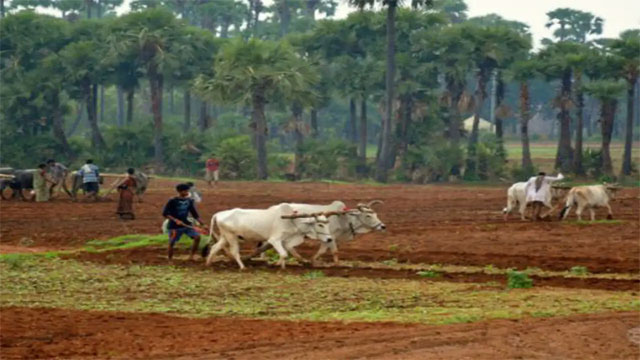Daijiworld Media Network - New Delhi
New Delhi, Sept 6: The central government has announced significant Goods and Services Tax (GST) reforms aimed at strengthening cooperatives, improving the competitiveness of their products, and boosting income for millions of farmers and rural enterprises across India.
According to the Ministry of Cooperation, the latest tax reductions are expected to directly benefit over 10 crore dairy farmers, promote sustainable agriculture, and enhance affordability of essential goods for households.
The reforms cover a wide range of sectors, with the dairy industry seeing some of the most impactful changes. Milk and paneer—branded or unbranded—are now fully exempt from GST, while the tax on butter, ghee, and similar items has been cut from 12% to 5%. Additionally, milk cans made of iron, steel, or aluminium will now be taxed at 5% instead of 12%.

These steps are intended to make dairy products more affordable, provide relief to consumers, and support women-led self-help groups engaged in rural milk processing.
In the food processing sector, GST rates on several widely consumed items have been slashed. Cheese, namkeens, butter, pasta, jams, jellies, bhujia, fruit-based drinks, chocolates, corn flakes, ice cream, pastries, cakes, biscuits, and coffee will now attract only 5% GST, down from earlier rates of 12% or 18%. This is expected to lower household food bills, stimulate rural demand, and drive growth in agro-processing cooperatives.
The government has also reduced GST on packaging materials, including paper, crates, and cases, to 5%, reducing logistics and packaging costs for small producers and cooperatives.
To aid the agriculture and animal husbandry sectors, GST on tractors below 1,800cc has been cut to 5%, while key tractor components like tyres, tubes, and hydraulic pumps have also seen a drop from 18% to 5%. These changes aim to lower machinery costs for farmers involved in crop cultivation, fodder production, and farm logistics.
In a major step to support sustainable farming, GST on critical fertiliser inputs like ammonia, sulphuric acid, and nitric acid has been reduced from 18% to 5%, helping correct the inverted duty structure and ensuring more affordable fertilisers for farmers.
Additionally, 12 bio-pesticides and various micronutrients will now be taxed at 5%, encouraging farmers to adopt eco-friendly inputs in line with the government's Natural Farming Mission. These changes are expected to benefit small and organic farmers, along with Farmer Producer Organisations (FPOs).
To improve the country’s supply chain, GST on commercial vehicles such as trucks and delivery vans has been lowered from 28% to 18%, making transport more affordable. Since trucks move over 65–70% of India’s goods, this reform is likely to cut freight costs, lower agriculture logistics expenses, and improve the global competitiveness of Indian exports.
The government said these sweeping reforms reflect its commitment to empowering rural India, expanding cooperative growth, and ensuring affordability for consumers while strengthening the rural economy at its core.